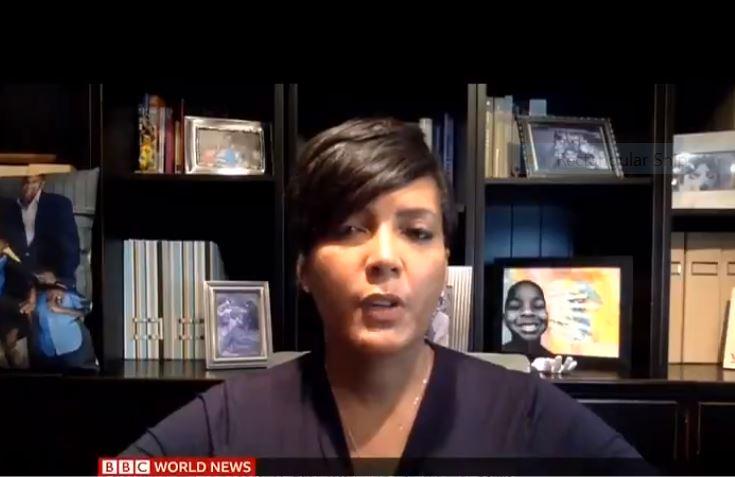Section Branding
Header Content
Atlanta Mayor Highlights Impact Of Coronavirus On African Americans
Primary Content
Atlanta Mayor Keisha Lance Bottoms is highlighting the impact of the coronavirus on black Americans.
In an appearance Thursday on the BBC World News, Bottoms compared what’s happening in the United States with a saying she grew up hearing as a child.
“When white America catches a cold, black America catches the flu,” Bottoms recounted. “In this case, it is pneumonia in black America.”
Some background from NPR:
About one in three people who became sick enough to require hospitalization from COVID-19 were African American, according to hospital data from the first month of the U.S. epidemic released by the Centers for Disease Control and Prevention.
Even though 33% of those hospitalized patients were black, African Americans constitute 13% of the U.S. population. By contrast, the report found that 45% of hospitalizations were among white people, who make up 76% percent of the population. And 8% of hospitalizations were among Hispanics, who make up 18% of the population.
As leader of one of the southeastern United States’ largest cities, Bottoms issued extraordinary executive orders before state officials appeared ready to enforce social distancing. Bottoms limited bars and restaurants to "to-go only" service, relaxed enforcement of laws that prohibit takeout alcohol sales and limited gatherings of more than 50 people.
On March 23, Bottoms was ready to declare a shelter in place order for the city of Atlanta but was asked by Gov. Brian Kemp’s office to hold off until his press conference that evening. During his remarks, Kemp closed businesses like in-house dining at restaurants but declined to order a statewide shelter in place.
Kemp has since ordered Georgians to shelter in place through April 30.
“For me it’s very personal,” Bottoms told the BBC.
Her four children, she said, have asthma, referring to data that show African Americans are more likely than other Americans to have underlying health conditions that make them vulnerable to COVID-19.
“I knew that we would be hard hit,” Bottoms said. “I knew that black America was catching it in a very real way simply by the sheer number of people who I knew were sick."
When asked whether she’d like to see more testing for communities of color, Bottoms stressed the shortage of testing.
She estimated that the number of people with coronavirus is double the published number because Georgia is not testing people with mild symptoms nor those who are asymptomatic.
“We’re nowhere near where we should be with testing,” she said.



